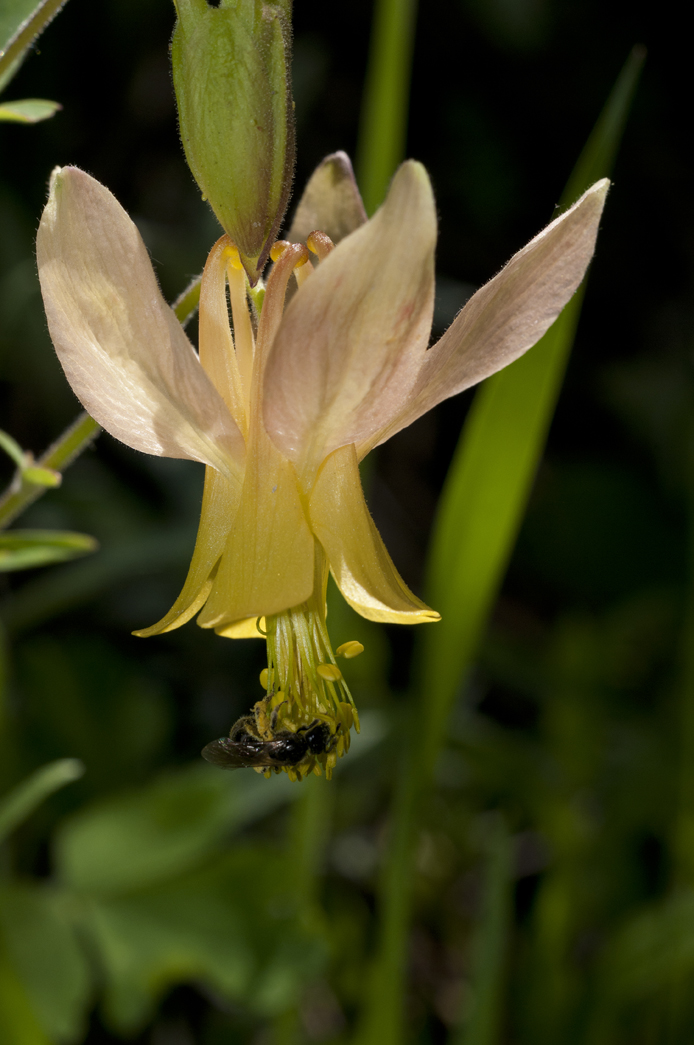
by Judy Lehmberg, BioPics Photography, www.vernelehmberg.com
I’m not sure if the wildflowers in Yellowstone have peaked or not but I do know they are everywhere and really beautiful right now. The following is a sample of what is blooming now.

Columbines are in the buttercup family. In Yellowstone they range in color from yellow to yellow and red. Many flowers have petals that are surrounded by green sepals. (Think of the green things you see surrounding a rose bud.) In columbines the sepals are a variety of colors, but they aren’t green. Their brightly colored sepals are a way of attracting pollinators. This one has just a tinge of red in its sepals and yellow petals. The yellow petals form tubes that long tongued insects can probe for nectar.
The genus name of Columbines is Aquilegia which is a word derived from the Latin word for eagle, Aquila, due to their petals resembling eagle claws. Columbines produce toxins which effect the heart.

This is a striped coralroot orchid. You may notice there aren’t any green parts on this plant. Plants without green parts, such as leaves, are unusual because green chlorophyll is necessary for plants to carrying on photosynthesis. This orchid is different. It has a relationship with a fungus. The fungus is intertwined with the orchids roots, which are coral shaped. The fungi absorbs nutrients from the surrounding soil and the orchid essentially steals nutrients from the fungi. The orchid is totally dependent on the fungi for its survival. That is why these orchids can’t be cultivated, they have to have their special fungi to survive.

This plant is called elephanthead and if you look closely at the flowers you can see where it gets its name. Like the coralroot it also gets nutrients from another organism, but in this case it uses its roots to steal nutrients from other plants and it does have chlorophyll so it can carry on photosynthesis as well. I picked this one to show you for Wendy who has seen little pink elephants in Yellowstone. One of her, and my, favorite flowers.

There is something so simple about a wild rose. After I first saw one I really prefer it over the domesticated ones with all of their petals. This rose is the provincial flower of Alberta, Canada. I have made jelly from its fruit, rose hips, that is a beautiful color and has a very delicate flavor. It was one of my friends, Martha’s, favorite.






Those are beautiful, Judy. I will miss seeing all the beautiful spring and summer wildflowers next year. Maybe there are some late summer/fall wild flowers? Thank you for your very informative articles.
I know of a few late summer ones. I will try to do at least one more post on them this year.
It is nice to see some photograph things other than animals in the park. I still have to ID all the flowers from my June visit. Love your articles.
Susan you might be able to identify some of them by looking at the Yellowstone plant section of my husband’s photo website, http://www.vernelehmberg.com.